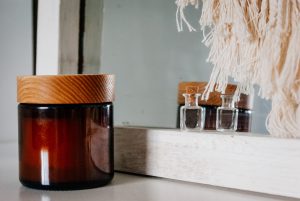Discover Safe Beauty Products

As consumers become more conscious of the impact that beauty and personal care products have on their health and the environment, they are increasingly seeking out non-toxic alternatives. However, with so many products on the market, it can be difficult to know where to start. In this blog, we will explore some of the most common toxic ingredients found in beauty and personal care products, and provide suggestions for non-toxic alternatives.
1. Parabens
As discussed in previous blog, parabens are preservatives commonly used in beauty and personal care products to extend their shelf life and prevent the growth of harmful bacteria and mold. However, they have been linked to a range of health problems, including hormonal imbalances and cancer. Non-toxic alternatives include products that are labeled as “paraben-free” and use natural preservatives, such as vitamin E, instead.
2. Phthalates
Phthalates are a group of chemicals used in a wide range of personal care products, including perfumes, nail polish, and hair care products. They have been linked to a range of health problems, including hormonal imbalances, reproductive issues, and even cancer. To avoid phthalates, look for products that are labeled as “phthalate-free” or “fragrance-free.”
3. Sulfates
Sulfates are a type of surfactant commonly used in shampoos, body washes, and other cleansing products. While they are effective at cleaning the skin and hair, they can be harsh and drying, and have been linked to skin irritation and even cancer. Non-toxic alternatives include sulfate-free shampoos and body washes, which use gentler, more nourishing ingredients to cleanse the skin and hair.
4. Petrolatum
Petrolatum, also known as petroleum jelly, is a common ingredient in many beauty and personal care products, including lip balms, lotions, and hair care products. While it is effective at moisturizing the skin, it can also clog pores and lead to skin irritation. Non-toxic alternatives include products that use natural and organic ingredients, such as coconut oil and shea butter, to moisturize the skin.
5. Synthetic Fragrances
Synthetic fragrances are used in a wide range of beauty and personal care products, including perfumes, lotions, and shampoos. However, they can be harsh and drying, and have been linked to skin irritation, headaches, and even respiratory problems. To avoid synthetic fragrances, look for products that are labeled as “fragrance-free” or “unscented.”
6. Formaldehyde
Formaldehyde is a preservative used in many beauty and personal care products, including hair care products, nail polish, and cosmetics. It has been linked to cancer, skin irritation, and respiratory problems. Non-toxic alternatives include formaldehyde-free hair care products, nail polish, and cosmetics, which use natural preservatives, such as vitamin E, instead.
7. Silicones
Silicones are a type of synthetic polymer commonly used in beauty and personal care products, including conditioners, hair care products, and makeup. While they are effective at smoothing and softening the skin and hair, they can also clog pores and lead to skin irritation. Non-toxic alternatives include products that use natural and organic ingredients, such as coconut oil and shea butter, to moisturize and nourish the skin and hair.
In addition to choosing non-toxic beauty and personal care products, there are other steps you can take to protect your health and the environment. For example, try to reduce

